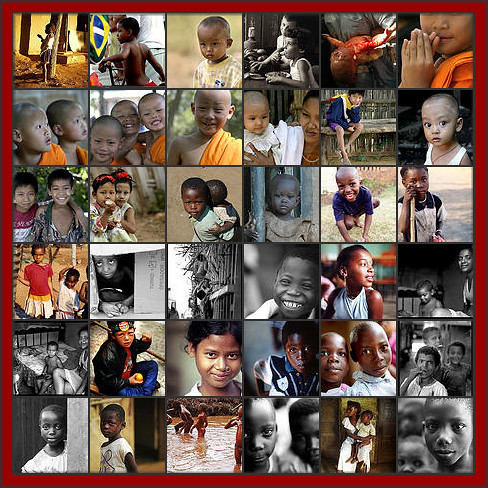.jpg)
My Personal Learning Environment (updated)
At the end of the first semester we were asked to think about the way we learn and develop a mindmap of our PLE (Personal Learning Environment). I remember that it took me a lot of time thinking about my PLE and how to arrange it. When I showed and explained my PLE to Sarah and the my peers, I noticed that it was quite different from the others. Now that I have to update my PLE I prefer keeping the same structure and simply adding new parts.
First of all, I added ‘Using Skype’ and ‘Wikipages’ in the section ‘Gathering Information in Informal Context’ since in this second semester we had the opportunity to use Skype and speak with American peers. I think it has been a wonderful experience, even if I spoke only twice with Michelle. Wikipages have proved to be useful as sources for gathering information since I read the wikipages of my peers and that of the course. Wikipages have been a helpful way to store information while doing our group project and so I added this tool in the ‘Storing and Organizing information’ section. They have been an interesting means to practice formal writing since the final project consisted in creating a group wikipage about a topic related to culture in US and in Italy.
I decided to be more specific in the section regarding ‘Formulating and Expressing Information’ and I added the people with whom I often speak English: peers, professors, foreign people and my American peer (Michelle). As far as the writing skill is concerned, I specified that I prefer using paper to take notes, while I use the computer to write blog posts, my part of the wikipage, comments in blogs and in the forum about Culture 'Confronti' and to give feedbacks to my peers. I also use the computer to write papers and essays, to chat and send e-mails to my peers and to Michelle. The computer has been useful also to write my thesis during the third year of university and to do some exercises to improve my knowledge of foreign languages.
Finally, I added a new branch to my PLE: ‘Self-Assessment of my Intercultural Competence’. During this second semester I learned that assessing my Intercultural competence is very important and the only person who can do this effectively is myself. During the last years of university, I had already filled in other questionnaires regarding my language and intercultural competence, such as the European Language Portfolio. However, it was during this last months that I had to consider thoroughly my intercultural competence and describe and explain it in details. The mid- term paper, the YOGA form and the ICC questionnaire forced me to think about my intercultural competence and improvements in language and constituted the starting points to write blog posts and prepare oral presentations about these topics.
That’s all for now!
Veronica
First of all, I added ‘Using Skype’ and ‘Wikipages’ in the section ‘Gathering Information in Informal Context’ since in this second semester we had the opportunity to use Skype and speak with American peers. I think it has been a wonderful experience, even if I spoke only twice with Michelle. Wikipages have proved to be useful as sources for gathering information since I read the wikipages of my peers and that of the course. Wikipages have been a helpful way to store information while doing our group project and so I added this tool in the ‘Storing and Organizing information’ section. They have been an interesting means to practice formal writing since the final project consisted in creating a group wikipage about a topic related to culture in US and in Italy.
I decided to be more specific in the section regarding ‘Formulating and Expressing Information’ and I added the people with whom I often speak English: peers, professors, foreign people and my American peer (Michelle). As far as the writing skill is concerned, I specified that I prefer using paper to take notes, while I use the computer to write blog posts, my part of the wikipage, comments in blogs and in the forum about Culture 'Confronti' and to give feedbacks to my peers. I also use the computer to write papers and essays, to chat and send e-mails to my peers and to Michelle. The computer has been useful also to write my thesis during the third year of university and to do some exercises to improve my knowledge of foreign languages.
Finally, I added a new branch to my PLE: ‘Self-Assessment of my Intercultural Competence’. During this second semester I learned that assessing my Intercultural competence is very important and the only person who can do this effectively is myself. During the last years of university, I had already filled in other questionnaires regarding my language and intercultural competence, such as the European Language Portfolio. However, it was during this last months that I had to consider thoroughly my intercultural competence and describe and explain it in details. The mid- term paper, the YOGA form and the ICC questionnaire forced me to think about my intercultural competence and improvements in language and constituted the starting points to write blog posts and prepare oral presentations about these topics.
That’s all for now!
Veronica













